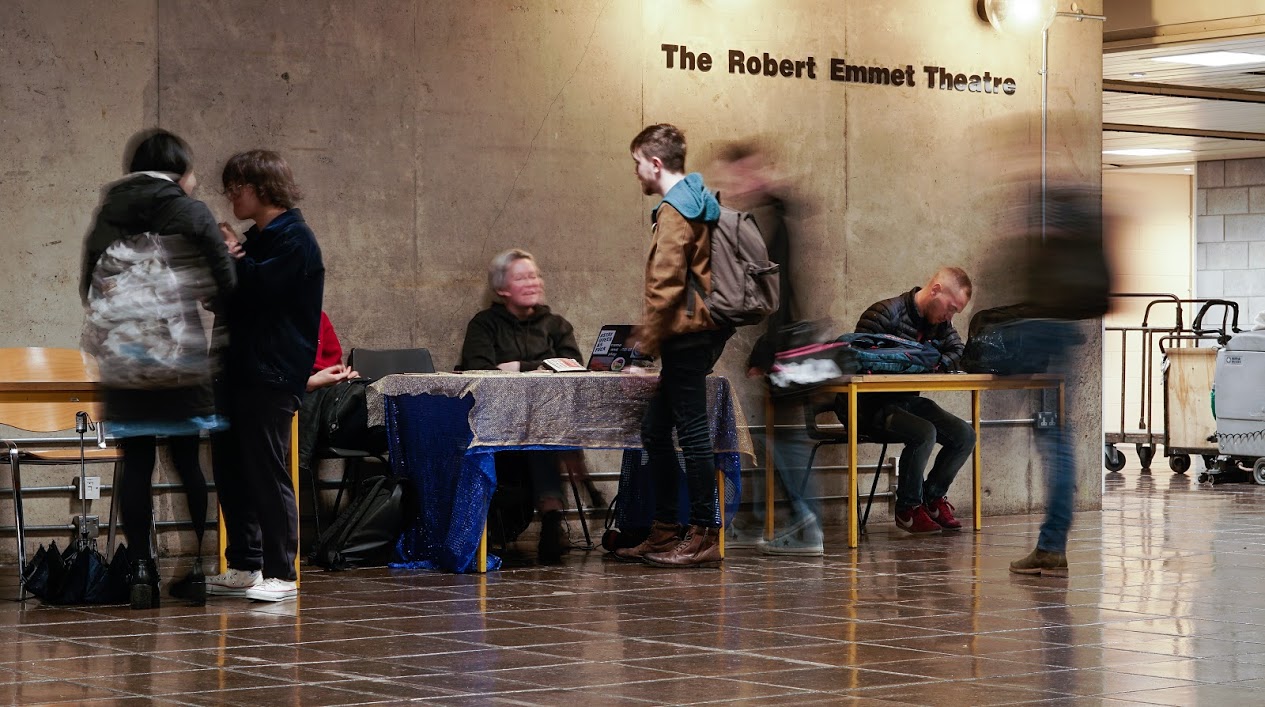“There is no one size fits all solution to the issue of accessibility.”
With over 120 societies and 50 sports clubs, Front Square during the annual Freshers’ Fair can be daunting for even the most confident of new students. For most, the decision to join a society relies on an affirmative answer to the simple question – will I actually attend any of these events? For students with mobility issues and accessibility requirements, a different question must be asked – can I actually attend any of these events?
The need for accessibility has been a highlighted issue within Trinity in recent years. There is no one size fits all solution to the issue of accessibility. Every affected individual will have needs particular to their own personal situation. Having said this, an accepted benchmark for accessibility relates to whether a wheelchair user could access the premises. Facilities such as ramps and elevators can be utilised by those with broad-ranging needs including visual issues, stamina related conditions, and chronic pain. While a lot of buildings on campus have at least one accessible route through the building, arguably the most iconic venue for societies on campus, House Six, remains inaccessible to wheelchair users and therefore unwelcoming to some students.
Those new to Trinity could be easily forgiven for assuming that the very home of the Students’ Union (SU) would be an open and welcoming place for all students. This is not the case. In fact, the SU kitchen’s “open door policy” should be rewritten to be “door open – to those who can climb stairs unassisted”. Any society who exclusively holds their events on the upper floors of House Six should also be mindful that doing so equates to saying that wheelchair users and students with other accessibility needs are unwelcome in their society.
It is commendable that Q-Soc recognised this and made the provision of holding accessible coffee hours once a fortnight in the Global Room, one of the most broadly accessible venues on campus, despite being on the first floor of the Hamilton building. The Global Room is accessible via ramps and elevators, with the room itself containing wide aisles between furniture to allow for easy mobility, low tables to allow for wheelchair users, and plenty of seats and chairs which make events more comfortable for those with stamina and fatigue-related issues.
“Societies should be mindful that many of those with accessibility needs will be apprehensive about expressing their needs to those running the event.”
Other large societies such as The Phil and The Hist (both housed in the GMB) are also aware of the fact that their chosen venues can have the by-product of alienating a lot of their members and potential members. Both of the debating societies have set up means by which those with accessibility needs can contact a designated member of the societies’ committee and attempt to access the event in a way that meets their personal requirements. While this is a noble attempt to rectify the issue of accessibility, it also negates the most advantageous feature of holding events on campus which is to encourage students to spontaneously drop-in and engage with the society in question.
TCDSU Disabilities Officer Laura Beston, has welcomed such efforts and admires societies’ efforts in relation to inclusivity: “There is an issue of accessibility within societies on campus but I’ve been very impressed over the past couple of months by societies coming to me and asking for advice on how to become more inclusive. It’s definitely something that people in Trinity are becoming very aware of and it’s encouraging to see so many people taking initiative on the matter.” While there is definitely a rising tide of accountability within societies’ committees in relation to meeting the accessibility requirements of their members; there is more that can be done. Societies should be mindful that many of those with accessibility needs will be apprehensive about expressing their needs to those running the event – especially Freshers who are already dealing with the natural hesitation and nervousness that accompanies joining a society for the first time.
To combat this, societies should make accessibility a given aspect of their events, rather than something that must be requested ahead of time. The easiest way to ensure society events are truly open to all is to rotate the venues of events that are held on campus and to ensure that venues such as the Global Room, lecture theatres and other accessible facilities within Trinity are utilised.
There are currently over 1,300 students who have formally registered with the Trinity’s Disability Service. This is a sizable portion of the student body which many societies cannot afford to exclude. Ultimately it is within the society’s own best interests to accommodate as many students as possible and to allow for diversity among their active members.






